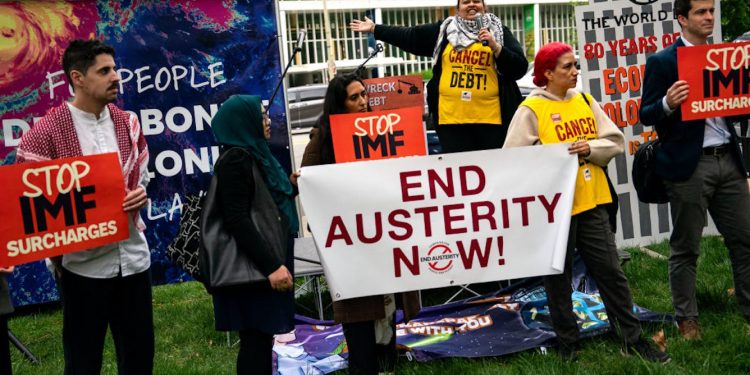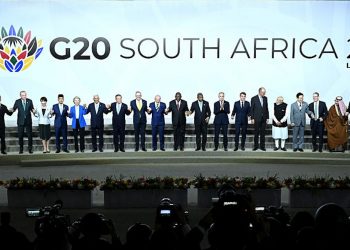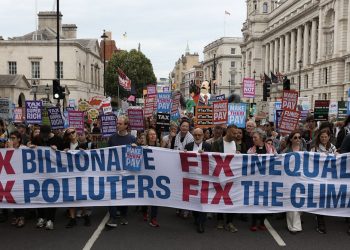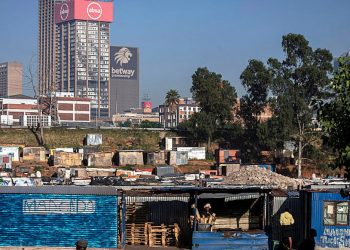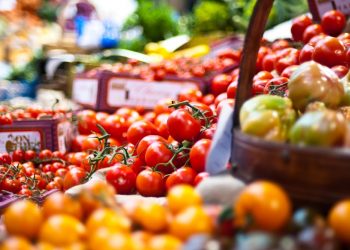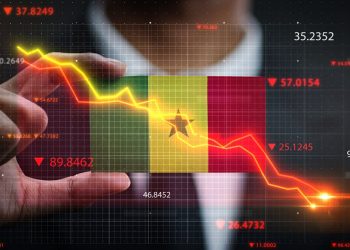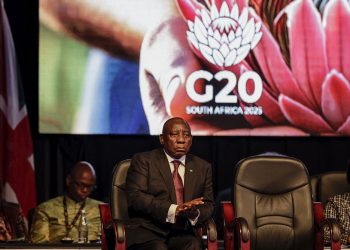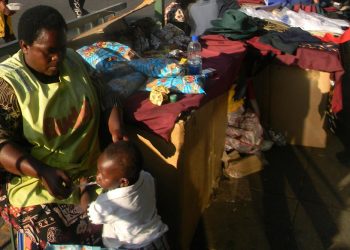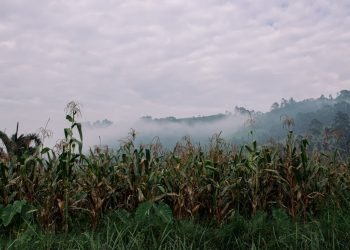At the 2021 UN Climate Summit, Barbados prime minister Mia Mottley called for more and better use of special drawing rights (SDRs), the International Monetary Fund’s reserve asset.
The special drawing right is an international reserve asset created by the IMF. It is not a currency – its value is based on a basket of five currencies, the biggest chunk of which is the US dollar, followed by the euro. It is a potential claim on the freely usable currencies of IMF members. Special drawing rights can provide a country with liquidity.
Countries can use their special drawing rights to pay back IMF loans, or they can exchange them for foreign currencies.
As Mottley is the newest president of the Climate Vulnerable Forum and Vulnerable Group of 20 (V20) finance ministers, which represents 68 climate-vulnerable countries that are among those with the most dire liquidity needs, including 32 African countries, her call would be directly beneficial to African countries.
In August 2021, as the shock from the COVID-19 pandemic battered their economies, African countries received a lifeline of US$33 billion from special drawing rights. This amounts to more than all the climate finance Africa receives each year, and more than half of all annual official development assistance to Africa.
This US$33 billion did not add to African countries’ debt burden, it did not come with any conditions, and it did not cost donors a single cent to provide.
IMF members can vote to create new issuances of special drawing rights. They are then distributed to countries in proportion to their quotas in the IMF. Quotas are denominated in special drawing rights, the IMF’s unit of account.
Quotas are the building blocks of the IMF’s financial and governance structure. An individual member country’s quota broadly reflects its relative position in the world economy. Thus, by design, the poorest and most vulnerable countries receive the least when it comes to quotas and voting shares.
Special drawing rights cannot solve all of Africa’s economic challenges. And their highly technical nature means they are not always well understood. But at a time when African countries are facing chronic liquidity challenges – most countries in the region are spending more on debt service payments than they are on health, education, or climate change – our new research shows that special drawing rights can play an important role in establishing financial stability and enabling investments for development.
Financial stability includes macroeconomic stability (such as low inflation, healthy balance of payments, sufficient foreign reserves), a strong financial system and resilience to shocks.
African leaders are approaching a critical year-long opportunity: in November, the first Group of 20 (G20) summit will convene (with the African Union in attendance as a member for the first time). Then in December South Africa assumes the G20 presidency.
Read more:
South Africa will be president of the G20 in 2025: two much-needed reforms it should drive
As African leaders advocate for reforms to the international financial architecture, maximising the potential of special drawing rights should be a central component of their agenda.
The problem
African countries’ finances are facing tough times. External debt in sub-Saharan Africa has tripled since 2008. The average government is now spending 12% of its revenue on external debt service. The COVID-19 pandemic, Russia’s war in Ukraine, and rises in interest rates and the prices of commodities, like food and fertiliser, have all contributed to this trend.
Debt restructuring mechanisms have also proved inadequate. Countries like Zambia and Ghana got stuck in lengthy restructurings. Weak institutional capacity and poor governance also impede efficient use of public resources.
At the same time, African economies need to increase investment to advance development, support a young and growing population, develop climate resilience and take advantage of the opportunity presented by the energy transition.
To meet the resources for a just energy transition and the attainment of the UN 2030 Sustainable Development Goals, investment in climate and development will have to increase from around 24% of GDP (the average for Africa in 2022) to 37%.
Special drawing rights have proved to be an important tool in addressing these challenges. Research by the IMF and others shows that African countries significantly benefited from the special drawing rights they received in 2021 to stabilise their economies. And this happened without worsening debt burdens or costing advanced economies any money, particularly as they cut development aid.
However, advanced economies exercise significant control over the availability of special drawing rights. The IMF’s quota system determines both voting power and their distribution. Advanced economies control most of the IMF’s quotas.
The advanced economies made the right decision in 2021 and in 2009 to issue new special drawing rights and the time has come again.
The solution
African and other global south leaders need to make a strong case for another issuance of special drawing rights at the IMF and World Bank meetings in Washington.
In addition to a new issuance of special drawing rights, advanced economies still need to be pressured to re-channel the hundreds of billions of special drawing rights sitting idle on their balance sheets into productive purposes.
The 2021 allocation of special drawing rights amounted to US$650 billion in total. But only US$33 billion went to African countries due to the IMF’s unequal quota distribution. Meanwhile advanced economies with powerful currencies and no need for special drawing rights received the lion’s share.
The African Development Bank has spearheaded one such proposal alongside the Inter-American Development Bank. Under this plan, countries with unused special drawing rights could re-channel them to the African Development Bank as hybrid capital, allowing the bank to lend around $4 for each $1 of special drawing rights it receives.
The IMF approved the use of special drawing rights as hybrid capital for multilateral development banks in May. But it set an excessively low limit of 15 billion special drawing rights across all multilateral development banks.
Even so, advanced economies have been slow to re-channel special drawing rights. The close to $100 billion that have been re-channelled – mostly to IMF trust funds – is meaningful.
But it still falls short of what should have been re-channelled.
In the long term, IMF governance reforms are needed to avoid a repeat of the inefficient distribution of special drawing rights.
Read more:
The World Bank and the IMF need to keep reforming to become fit for purpose
As African countries rightly push to change shortcomings of the international financial architecture, new special drawing rights issuances should be at the centre of such a strategy. The IMF’s 2021 special drawing rights issuance showed the tool’s scale and importance. And special drawing rights re-channelling has had positive effects in easing debt burdens and freeing up financing to recover from the COVID-19 pandemic.
With 2030 approaching and the window shrinking for climate action, global leaders should be using all the tools at their disposal, including special drawing rights, to build a more resilient future.
Abebe Shimeles received funding from African Economic Research Consortium. He is affiliated with Institute of Labor Studies, IZA
Kevin P. Gallagher does not work for, consult, own shares in or receive funding from any company or organisation that would benefit from this article, and has disclosed no relevant affiliations beyond their academic appointment.

